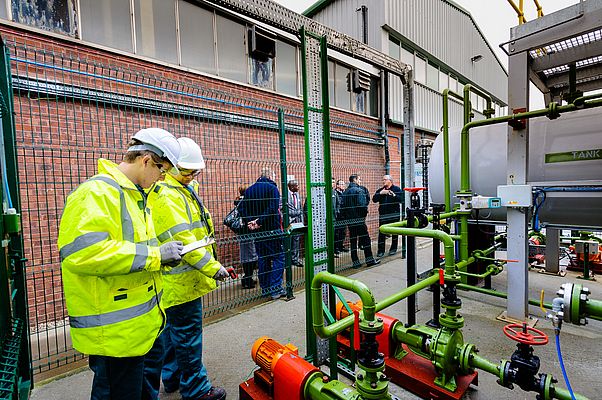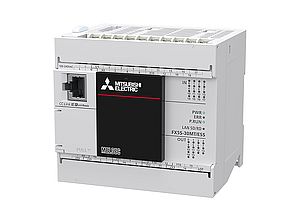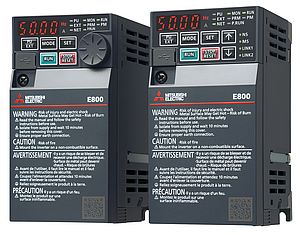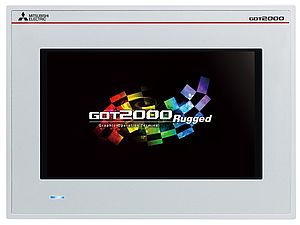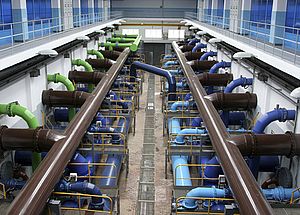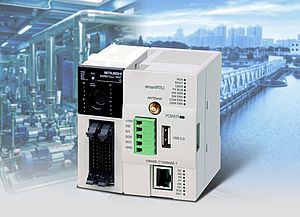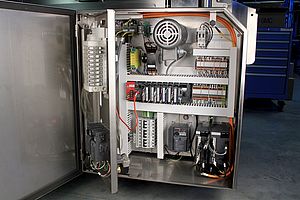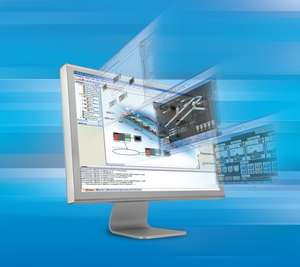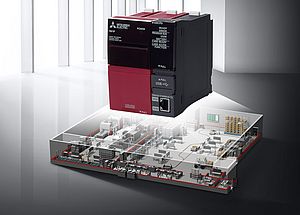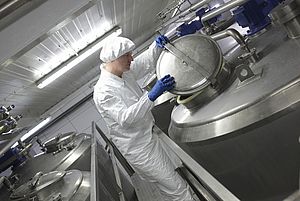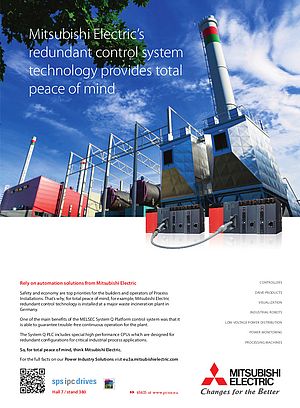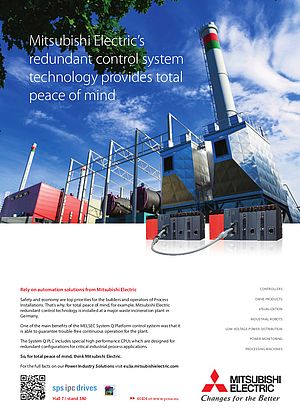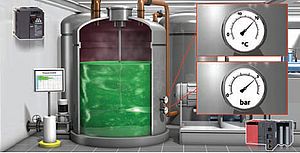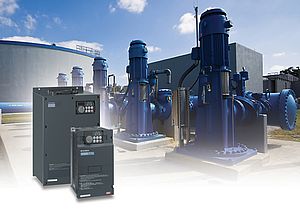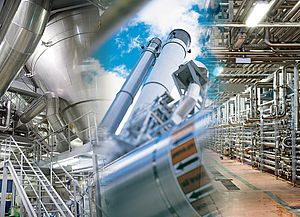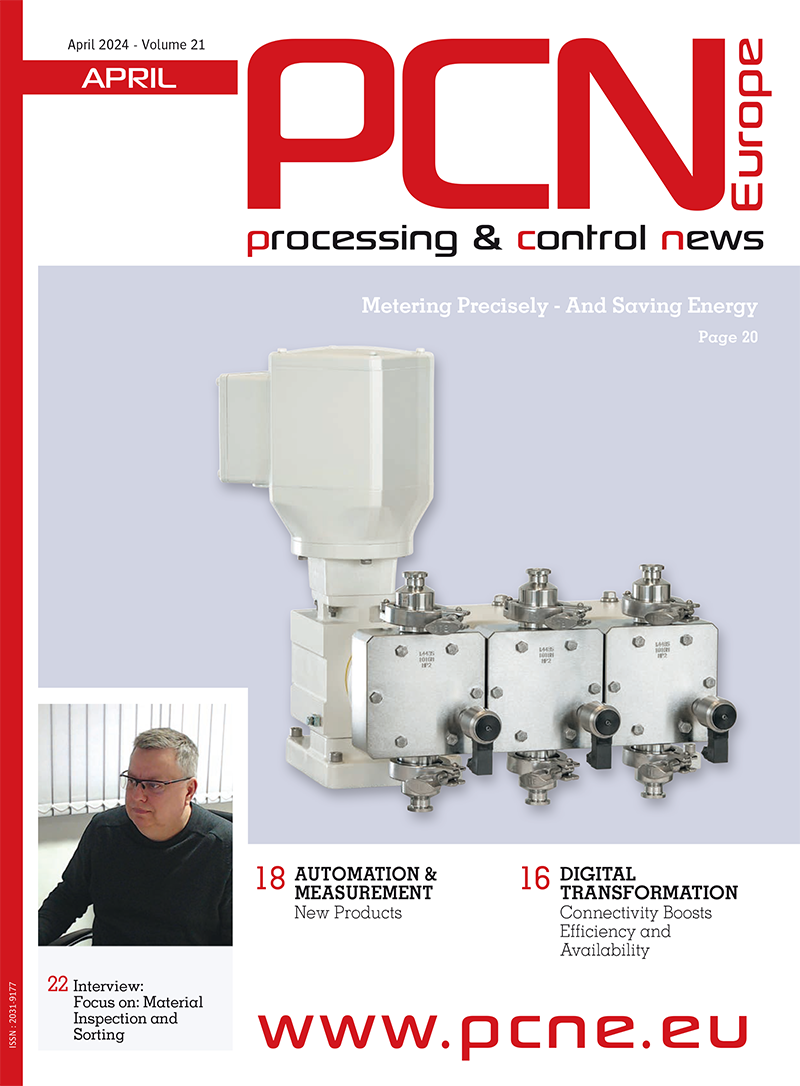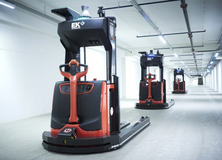A process industries training rig, built at Humberside Engineering Training Association (HETA) uses PLCs, HMIs and control software to provide a range of different educational scenarios for students and apprentices.
The idea behind the rig is that it provides courses in a live plant environment, so is very much more practical than computer-based simulations. It will be used by about 80 full time apprentices and 100 adults on training courses a year.
HETA is an industry Group Training Association providing engineering and process apprenticeship schemes from three sites around Humberside. It provides off-the-job training, monitoring of apprentices in the workplace, apprentice recruitment for employers, up-skilling and multi-skilling of workforce personnel, and Health and Safety training.
The new rig was built over a four year period, by the apprentices themselves. Initially a contractor poured the concrete for the civil works, but after that all mechanical and electrical work was undertaken by the apprentices.
It is controlled by Mitsubishi Electric SCADA (supervisory control and data acquisition) and includes a number of FX and Q series PLCs (programmable logic controllers), as well as HMIs, pumps, valves, flowmeters and other fluid management equipment. The control equipment, hardware and software, was supplied by LC Automation, one of Mitsubishi's biggest UK distributors.
Mitsubishi Electric SCADA is key to ensuring the rig's flexibility for providing tailored training modules to meet individual requirements. It is designed to provide scalable, flexible and reliable control and monitoring systems, so is a firm favourite across many industry sectors. And these same features – plus its widespread use – also make it ideal for the HETA training rig too.
A fully integrated package, Mitsubishi Electric SCADA's easy-to-use configuration tools and powerful features enables solutions to be quickly developed and deployed, even for complex requirements. The scalability allows students to easily create solutions for large systems, while its exceptional flexibility allows them to explore both centralised and distributed signal processing.
The SCADA package has built-in redundancy, which prevents the HETA trainees becoming thwarted by internal faults. Naturally in industrial applications redundancy prevents loss of functionality, performance and data files.
The SCADA development tools include graphical process visualisation, historical/real time trending and advanced alarming and reporting, all of which are proving useful in the HETA training environment. Programming is remarkably fast using MX4's library of program modules, wizards and animation genies.
It interfaces directly with many makes of PLC, although the HETA rig uses Mitsubishi Electric's own FX and Q-series controllers. Mitsubishi's PLC range is truly comprehensive, from the compact FX Series to the high-end Q-Series automation platform capable of running entire plants with thousands of I/O.
The Mitsubishi FX is by far the best selling compact PLC in the world; its inclusion on the HETA rig means students are highly likely to be trained on equipment they will meet in the field. Launched 30 years ago, it has constantly developed and today is a sophisticated and highly capable unit. It is used in many industries for roles such as valve sequencing, pump control and flow monitoring.
While the FXs allow trainees to become familiar with the basic concepts of process automation; the Q-Series units take them to the cutting edge of integrated control. With an automation platform that combines all key automation types on one controller, Q-series is very much state of the art control. However it has also been designed to be easy to use, as it automatically merges all of the sub-systems into a single integrated system.
In industrial applications Q-series reduces engineering and re-engineering times massively, thus saving costs and increasing a plant's flexibility to adapt to changing market demands. At HETA it allows student after student to develop their skills to the highest levels of control engineering without wasteful downtime between students.
HETA says it expects the rig to be a central part of many of its training programmes for literally generations to come. As technology develops, it will be able to update the control equipment and thus always keep its offer relevant to industry.
And finally, an oil industry guest at the official opening in late 2012 was so impressed with the rig that he immediately enquired about the possibility of flying in students from America and other regions where his global company operates.
Process industries rig
trains future engineers
- by Mitsubishi Electric Europe B.V
- February 18, 2013
- 271 views


